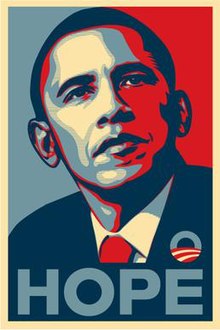De Tocqueville famously said that “the American republic
will endure until the day Congress discovers that it can bribe the public with
the public’s money.” When married with Keynes’ tongue-in-cheek observation that
“in the long run, we are all dead,” we have an insight into what is arguably
the single biggest problem in American politics today: how we think about time.
We live in the here and now, for tomorrow we die. This could, if left unaddressed,
cost us the Republic that Benjamin Franklin warned us would be a challenge to
keep. We cannot banish the greed that drives De Tocqueville’s fear from human
nature, and given the very real suffering and pain being experienced by
Americans daily, thinking about the long run seems like an idealistic fantasy
divorced from the reality of immediate needs. Short-term bribery, not long-term
planning, wins hearts and wins elections.
And bribed we have been. Take debt, for example. It wasn’t
until Reagan’s sunny optimism in the 1980s that U.S. debt surged past $1
trillion, but it has certainly climbed since then. Gone are the days of asking
not what your country can do for you, but what you can do for your country; now
we reward politicians who promise us heaven “because,” they tell us in the most
patronizing of tones, “people have a right to it.” The government owes the
world to its citizens, never mind that nothing comes for free, especially not
other people’s labor, and heaven is an expensive place to live in. Who will
pay? The $17 trillion in current debt has still not produced any kind of
utopia, but it certainly amounts to a utopian price tag. No one has yet been
willing to own up and pay the bill.
Our national problem with the future far exceeds government
spending though; it’s a problem of a collective mindset. The average American
credit card debt exceeds $15 thousand. Student loans and mortgage debts are
even higher: $33 thousand and $150 thousand on average, respectively. Most
Americans have no substantial retirement plan, no safety fund in case of
emergencies and buy insurance only when it’s legally required.
Here, the question of “who pays?” has a clearer answer: “the
suckers.” The suckers, so labeled by Michael Lewis in his semi-autobiographical
book “Liar’s Poker,” are those who are out of the loop and unknowingly buy into
the baited pyramid scheme that is so effective in garnering support and votes.
The outrageous wealth inequality our nation has experienced in the last few
decades isn’t the cause of our political and social problems—it’s the result of
audacious bribery with the public’s own money, by our government, by our banks,
by businesses and by us. We’ve been sold the lie that we can have it all, and
have purchased a perfect present at the price of the future. But we did that
several decades ago. Now yesterday’s future is upon us, and Shylock has finally
come to demand his recompense, far exceeding a mere pound of flesh.
Perhaps “the suckers” are expected to pay for the national
debt as well.
What will we do?
The unenlightened, knee-jerk reaction, and what Congress has
been coerced into doing thanks to public demand, is to indefinitely defer any
unpleasantry deep into the future. We could call this the ostrich approach: burying
one’s head in the sand to make the problems go away. The obvious problem with
this is that the problems don’t actually go away. Wealth inequality, global
warming, national debt and economic hardship are not problems we can deny, wish
or purchase away, despite the corporate propaganda trying to persuade us to the
contrary.
A better solution would be to acknowledge that we cannot
have our utopia—our proverbial cake—and our future too, and to be highly
suspicious of those who claim they can make two and two equal five. The
political problems we are facing today are the result of promises that cannot
be kept, to be made with money that we do not have and at the price of the
pain-deferred future that we will have to live with. When we vote for our
political candidates, when we buy things, when we save money, when we decide
how much we will work and how much money we expect for our work, we must think
about the long-term consequences of our actions instead of just the short-term
benefits. Failing to do so is to accept a polarized, divisive and dysfunctional
state of the nation in exchange for a devilish offer of temporary money and
comfort. It’s one that our nation should have rejected long ago, but the sooner
the better.


